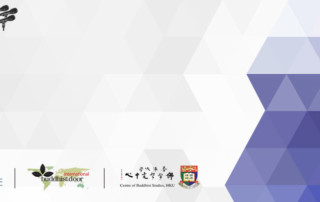Ecological Characters of Hong Kong Foodways
Posted on 17/4/2014
EVENT DETAILS
Since the 1950s, foodways in Hong Kong became enormously diversified regarding the improvement of living standards with the increase in its economic achievements. Throughout the late 1970s, the increase of overseas tourism heightened the demand for choice by local residents and for increased variety in distinctive modern city lifestyles; likewise, this new wealth increased expectations for more delicate, exotic and refined foods in the local diets; the demand for a higher quality of life can be seen through the emergence of nouvelle Cantonese cuisine, which combines exotic taste, expensive ingredients and Western catering. Since the emergence of nouvelle Cantonese cuisine, different foods, such as American fast food chains, French fine dining, Italian pasta, Japanese sushi, Korean barbeque, Thai spicy food, Vietnamese and other regional cuisines of China, continue to arrive and significantly influence Hong Kong society, cuisine and foodways. Starting from the late 1990s, however, among new developments in local food trends, different versions of “country-style cooking,” with an emphasis on local, domestic and traditional culinary skills, have emerged as the most popular of Hong Kong’s cuisines.
Sidney C. H. Cheung is Professor and Chairperson of the Department of Anthropology, Associate Director of the Centre for Cultural Heritage Studies, The Chinese University of Hong Kong, he has carried out field research in Japan, Hong Kong, mainland China, Southeast Asia and Louisiana, and published his research on visual anthropology, anthropology of tourism, cultural heritage, food and identity in journals such as: Visual Anthropology, International Journal of Heritage Studies, Annals of Tourism Research, etc. and is co-editor of Tourism, Anthropology and China, (White Lotus, 2001), The Globalization of Chinese Food (RoutledgeCurzon 2002) and Food and Foodways in Asia: Resource, Tradition and Cooking (Routledge 2007). He serves as a partner of the UNESCO Chair project of Tours University, France on “Safeguarding and promotion of Cultural Food Heritage,” and member of the Scientific Committee of Greenline Heritage conference series in Portugal since 2008.
Presents By: Pearl Institute (Formerly known as Anatolia Cultural & Dialogue Centre)
Time: 17th of April 2014 – Thursday – 07.00 – 09.00 pm
Venue: 909 C C Wu Building, 302-308 Hennessy Road, Wan Chai, Hong Kong
- Dialogue Between Islam and Buddhism through the Concepts Ummatan Wasatan and Majjhima-PatipadaPearl Institute2017-06-06T11:38:04+08:00
- Heritage of Dialogues between Islam and Confucianism: Chinese Islamic Classic during the later Ming and Qing DynastiesPearl Institute2017-06-06T11:38:10+08:00
- “In the Footprints of Francis and the Sultan: A Model for Peacemaking”Pearl Institute2017-06-06T11:38:29+08:00
- Verses of Love – Buddhist, Islamic and Christian Poets on Embracing “the Other”Pearl Institute2017-06-06T11:38:29+08:00
The views and opinions expressed on this posts/pages are those of the authors and do not necessarily reflect the views or opinions of Pearl Institute, its staff, other authors, members, partners, or sponsors.


























